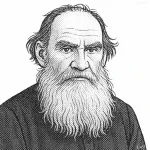“Our country is that spot to which our heart is bound.”

- November 21, 1694 – May 30, 1778
- Born in France
- Philosopher, man of letters, historian
table of contents
Quote
“Our country is that spot to which our heart is bound.”
Explanation
This quote reflects Voltaire’s view on patriotism and the emotional connection individuals feel toward their homeland. He suggests that true patriotism is rooted not in abstract ideas or political structures, but in the deep, personal affection and attachment we have to the land and people we call home. Voltaire’s words emphasize that a person’s country is defined by the emotional bond they share with it, rather than merely by geographic or national boundaries.
In modern contexts, this idea resonates with the emotional ties people have to their countries, shaped by culture, history, and personal experiences. Patriotism often goes beyond political allegiance; it is about the sense of belonging and love for one’s community, traditions, and values. Voltaire’s quote invites reflection on the personal, heartfelt connection that defines what “country” means to each individual.
A specific example of this principle can be seen in the way immigrants often describe their homeland, even if they no longer live there. Though they may have moved to other countries, many still feel a deep emotional connection to their place of origin, often motivated by a sense of family, culture, or shared history. Voltaire’s quote reminds us that our country is not just a physical location, but a place where our heart and identity are intertwined.
Would you like to share your impressions or related stories about this quote in the comments section?




